
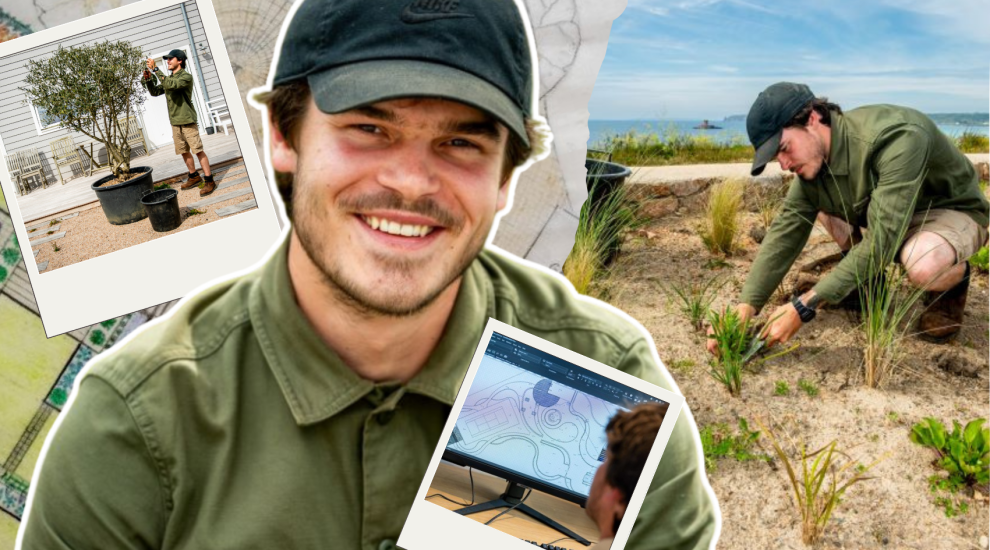

Moving house to more urban surroundings alongside the pressure of GCSEs led Wills Baker into a very "unhappy" place when he was just a teen, but this experience formed the green shoots that would lead him down an unconventional path to becoming a deeply passionate advocate for the natural world – and an entrepreneur aged just 21.
The business owner, garden designer and horticulturalist spoke to Connect Magazine about his childhood and how that led him to where he is today...
There was, as Wills Baker admits, nothing ordinary about the treehouses which he and his brother would spend hours making when they were children.
“We were always creative, so each treehouse would have a drawbridge and a pulley system,” he smiled. “We built furnaces and melted stuff down to create the components we needed. We were constantly outside, playing and making things.”
For the first 15 years of his life, Wills grew up in the heart of the countryside and, as his parents spent that time renovating the derelict farmhouse at the centre of the property, he immersed himself in nature, spending as much time outside as he possibly could.
But then his parents moved house and Wills, who set up Davidsons Garden Design Studio at the end of last year, struggled to adapt to his new surroundings.
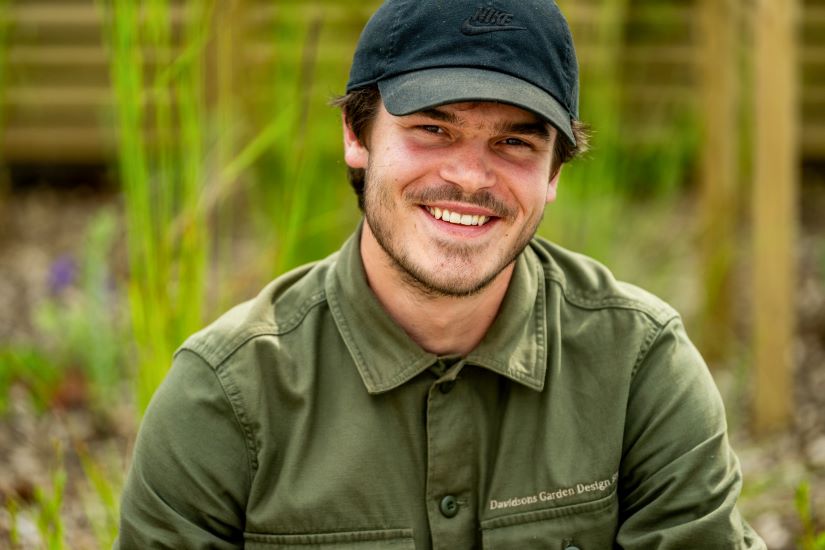
Pictured: Wills Baker started his own company, Davidsons Garden Design Studio, last year at the age of 21.
“We moved to Five Oaks, which was a lot more urban,” he reflected. “This coincided with the time that I was studying for my GCSEs and having to spend more time inside.”
It was a change in circumstances which had an adverse effect on the garden designer and horticulturalist.
“I became very unhappy. Everything felt negative and although I didn’t realise it at the time, I think that unhappiness stemmed from the fact that I couldn’t spend as much time in nature as I was used to – although I did go on walks and spend time chatting to local farmers whenever I could,” he reflected.
Despite his growing resentment of the world of academia, the Old Victorian was determined to remain at school and complete his A-levels.
“My parents had provided me with a really good education, and I felt that they might have been disappointed if I’d left after GCSEs, so I stayed on and studied physics, maths and psychology,” he explained. “I thought that if I was going to carry on, I might as well choose three ‘heavy’ subjects and do it properly.”
After another two years of studying, Wills was looking forward to a life free of textbooks and exams – but then he enrolled on an apprenticeship which quickly shattered that dream.
“After four years of studying for exams, I knew that I wanted to be outside and that I wanted to do something hands-on but I had no idea what options were available,” he said. “I didn’t even know that gardening or garden design was a career path I could follow.”
Enlightening him about this was the careers adviser at Victoria College who, recognising his restlessness, showed him the advert for a gardening apprenticeship position at Trinity Manor.
“She knew that I didn’t know which path to take and she was the first person to introduce me to this industry,” he said.
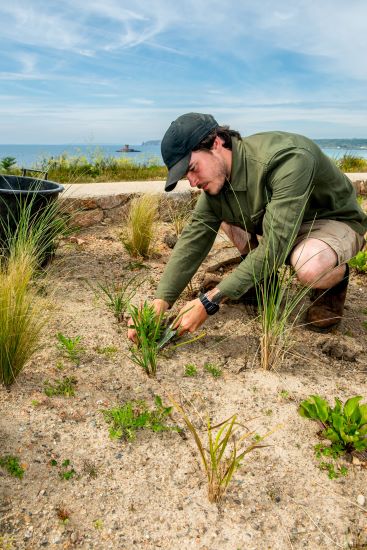
Pictured: Wills knew that his passion was for the outdoors.
“I was also very lucky that the apprenticeship had just been set up, thanks to the hard work of Jess McGovern, who was then at the RJA&HS, and David Room, who was head gardener at Trinity Manor.”
But Will was in for something of a shock when, after beating around 70 islanders who applied for the apprenticeship, he was handed not just a set of tools but also a thick folder full of facts which he had to learn.
“The apprenticeship didn’t just involve practical work; it also prepared you for the RHS level two qualification in horticulture,” he said with a wry smile.
“That meant that I had to go back to revising and sitting exams and I have to say that had it not been the support of the team at Trinity Manor and my tutor at Trackers, I may not have stuck with it.
“When the academic side started putting me off gardening, they kept me on track, reminding me that the hours of study were a small sacrifice which would allow a much broader door to open.”
After completing the course in two years – and qualifying with a distinction – Wills remained at the manor to “gain further experience” before taking the plunge and launching his own business when he was just 21 years old.
“Those three years at Trinity Manor were incredible. I can’t imagine there being a better place to learn about horticulture and gardening,” he said.
“Not only is the variety of plants incredible there but David is hugely knowledgeable. He was taught by John Brookes, a renowned landscaper and garden designer. His passion for gardening was contagious and he was – and still is – hugely instrumental in shaping my career.”
Indeed, it was David who introduced Wills to garden design and whose insights and expertise have, says Wills, been “invaluable”.
“Garden design is hugely complex and a lot of people don’t realise how much engineering goes into planning a garden,” he added. “You have to consider so many elements. Even the initial site assessment will consider the sub-surface materials you might have to deal with and their impact on the alkalinity of the soil.
"Then if you want a retaining wall, that needs to be designed to a certain specification, bearing in mind materials, different types of bricks, the damp course, membranes etc.”
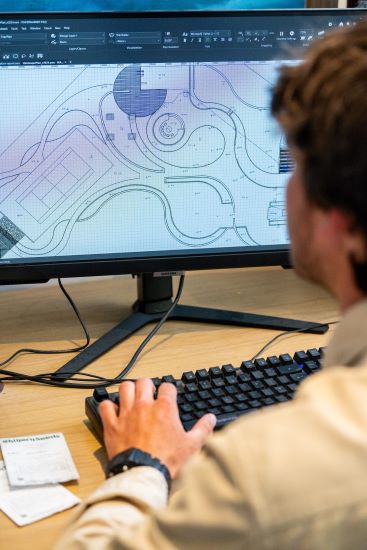
Pictured: Designing a garden can be a very complex process.
While he says his maths and physics A-levels have helped with some of these areas, he also says his psychology studies have been hugely beneficial.
“Knowing how people think and understanding the feelings that you want to create through the garden design are key parts of the job,” he said.
“A garden should make you feel something; it needs to have a philosophical purpose. One of the first things I learnt on the course was the importance of spirit of place and understanding the history of the space and what it is spiritually connected to.
“You also have to understand the character of each client and one of the best way to do that is to see the interior of the house and get a feel for the colour palette they have used and whether they like a minimalist or maximalist style.
“While that can be trickier when approaching a new-build, even looking at the plans and talking to the architects about the materials they are using can tell you so much.”
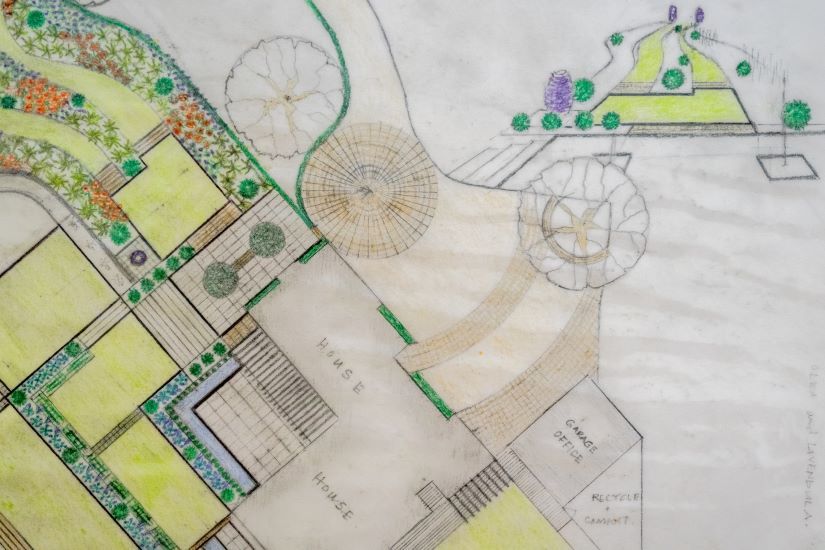
Pictured: Wills gets to know his clients as part of his design process.
How many of the interior-design features carry though to the garden varies according to each client and can even be determined by the size of the outdoor space.
“If you have a big enough property, you can create different ‘rooms’ in the garden, with different styles based on the microclimate within each area,” Wills explained.
“For example, if you have a walled area, which is warmer than a more open space, you will have the opportunity to grow a different selection of plants. You could have an ornamental walled garden with more tropical plants and then an open area, looking out over the bay, perhaps, featuring a range of wild grasses. That would create two completely different moods and feels and yet you could keep one overarching theme running through the whole space.
“There is so much scope for creativity but I don’t believe that you should ever separate the house from the garden completely.”
And while the design side can vary from “pizza ovens to gate posts”, there are certain philosophies at the heart of the business which Wills applies to all projects.
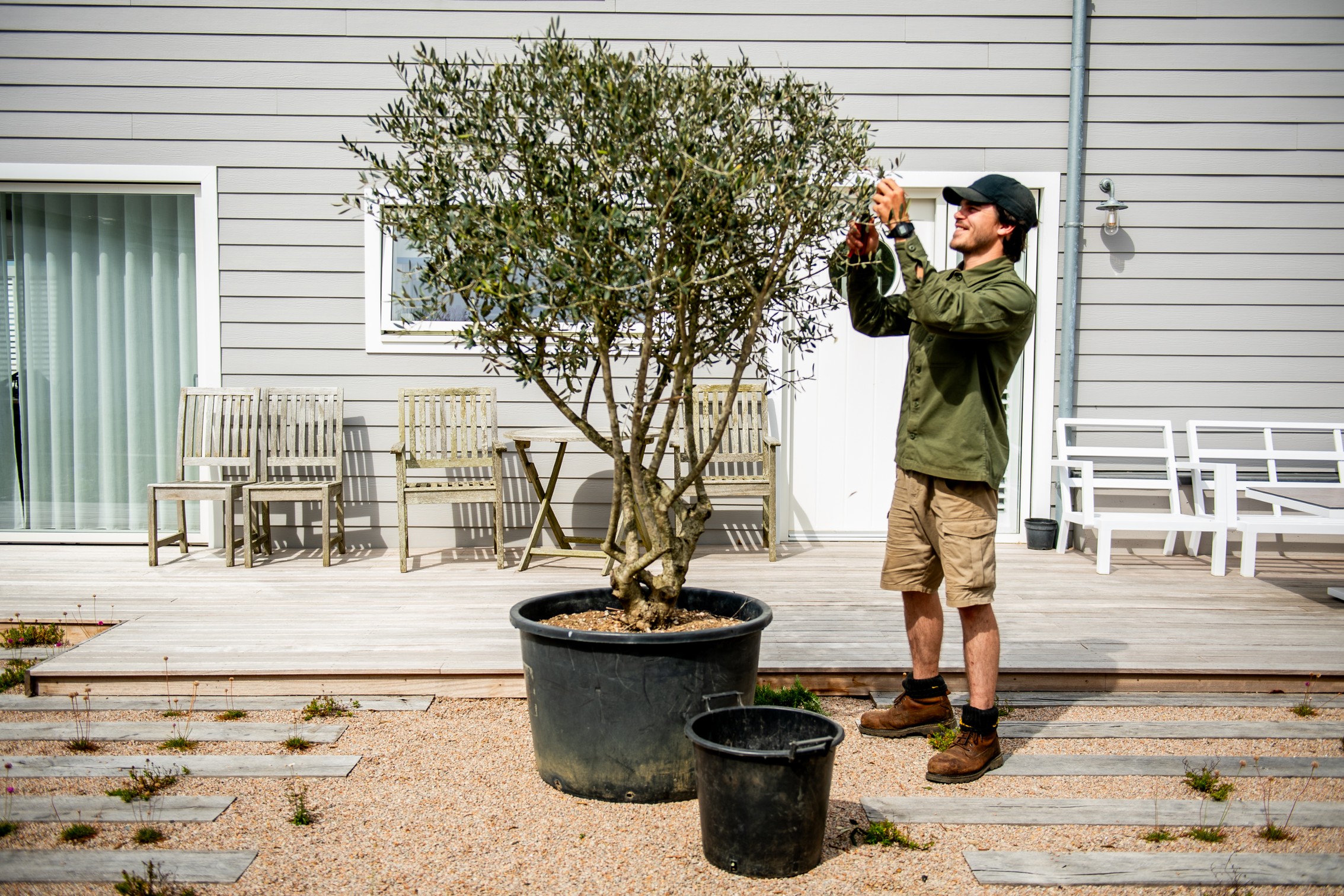
Pictured: Wills aims for his business to be as organic as possible
“DGD Studio is an organic modern business,” he said. “I don’t use any chemicals. If a plant is in poor health because the soil is in poor condition, we don’t chuck fertiliser onto it. Instead, we introduce organic matter into the soul and might even take the plant out and clean it up if necessary before introducing a soil improver such as horse manure or broken-down compost.”
And compost is something which Will is particularly passionate about.
“I love introducing compost heaps to the gardens we design,” he said. “A properly managed compost heap, which is rotated and saturated to maintain consistent moisture and temperature, is so important, not least because it is a self-contained system, which keeps everything in its natural environment.
“It is also an incredibly satisfying process to see something go from life to death and back to life, as you turn green waste into black soiled compost and then use that to support new life forms within the garden. It is all about working with nature, rather than against it.”
But it is not only nature with which Wills is keen to work as the business grows.
“While DGD Studio may be in its infancy, as it grows, I really want to educate and inspire other young people to get into gardening and enjoy time outdoors,” he said.
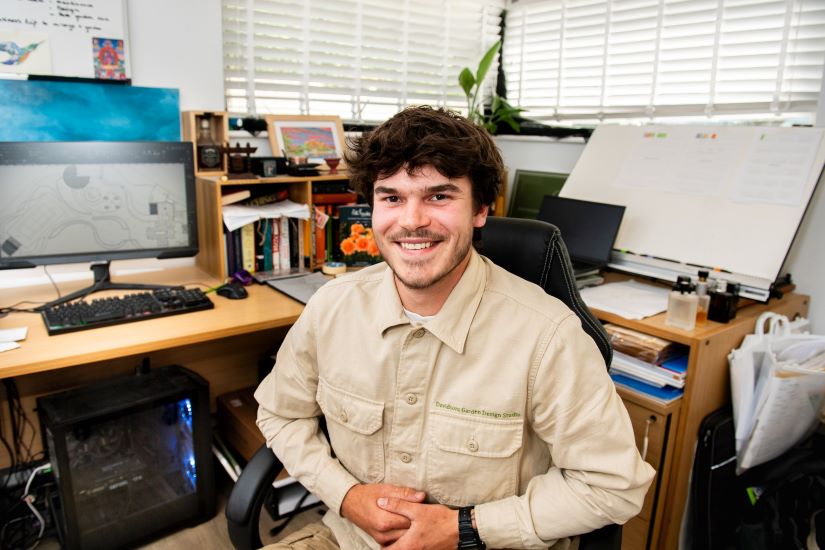
Pictured: As DGD grows, it aims to inspire other likeminded young people.
“There may be young people out there who don’t feel particularly happy but don’t necessarily know why. If you try gardening, there is a good chance that, after a year, you will be a happier, fitter and healthier person than you are now.
“That’s why, over the longer term, I’m really hoping that we will be able to take on some young people who are keen to learn about horticulture, as well as picking up the physical skills involved with gardening.”
And while this prospect fills him with both “excitement and apprehension”, it may not be too long before Wills is ready to expand his team.
“We have taken on one large and complex project, which will require some additional gardeners,” he said. “It is a three-to-five-year project. Initially, there will be a lot of cleaning, soil and plant analysis and organizational work to be done. This will be followed by propagation, giving team members the chance not just to get involved with the physical work but also to learn about the horticultural side.
“After that, if the people want to stay on there will be an opportunity to do so as part of the after-care team. This is something which is hugely important as the long-term design of a garden is only as good as the people looking after the space.
“Without the care, things will outgrow their space and start killing off other plants, while weeds will start coming in and having an impact and before you know it, what started out as a beautiful garden becomes an unwieldy jungle.That’s why I want DGD Studio to be a one-stop shop, which offers everything from design and garden creation to after-care, all in a way which has nature at its heart.”
This article first appeared in Connect Magazine, which you can read in full below.
Comments
Comments on this story express the views of the commentator only, not Bailiwick Publishing. We are unable to guarantee the accuracy of any of those comments.